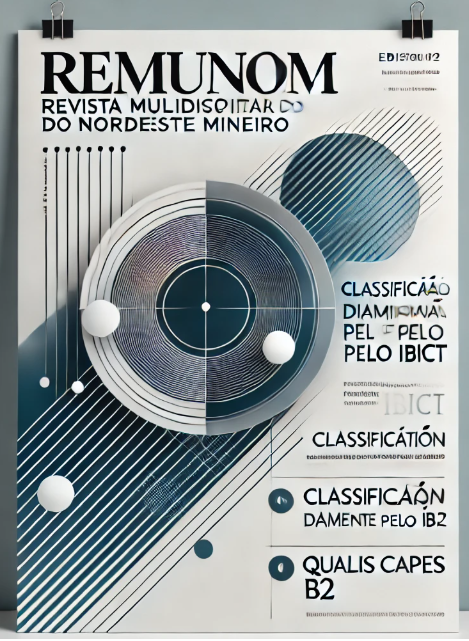GAMIFICAÇÃO NA EDUCAÇÃO CONTEMPORÂNEA
ESTRATÉGIA DE ENGAJAMENTO E PERSONALIZAÇÃO DO ENSINO
DOI:
https://doi.org/10.61164/rmnm.v3i1.3571Palabras clave:
Gamificação, educação personalizada, motivação, engajamentoResumen
A gamificação e a educação personalizada emergem como abordagens inovadoras no cenário educacional, alinhadas às demandas do século XXI. A gamificação, definida como a aplicação de elementos de jogos em contextos não lúdicos, utiliza sistemas de pontuação, recompensas, narrativas e feedback imediato para criar experiências de aprendizagem mais envolventes e motivadoras. Autores como Hamari, Koivisto e Sarsa (2014) destacam que a gamificação aumenta a motivação intrínseca dos alunos, especialmente quando alinhada aos objetivos educacionais. A Teoria da Autodeterminação de Deci e Ryan (2020) reforça que a gamificação atende às necessidades psicológicas básicas de autonomia, competência e relacionamento, essenciais para o engajamento dos estudantes. Já a educação personalizada adapta o ensino às necessidades individuais dos alunos, permitindo que cada um aprenda no seu próprio ritmo e de acordo com seus interesses. Howard Gardner (1983), com sua Teoria das Inteligências Múltiplas, argumenta que a personalização é crucial para respeitar os diferentes estilos de aprendizagem. Plataformas adaptativas, como a Khan Academy, exemplificam como a tecnologia pode ser usada para personalizar o aprendizado, oferecendo conteúdos que se ajustam às necessidades específicas de cada aluno. No entanto, a implementação dessas estratégias enfrenta desafios, como a falta de infraestrutura tecnológica, a necessidade de capacitação docente e o risco de super gamificação, onde os alunos focam mais em recompensas do que no conteúdo. A gamificação também pode contribuir para o desenvolvimento de habilidades do século XXI, como pensamento crítico, resolução de problemas e colaboração, preparando os alunos para os desafios futuros. Em conclusão, a gamificação e a educação personalizada oferecem uma abordagem promissora para transformar a educação, tornando-a mais dinâmica, inclusiva e eficaz. No entanto, sua implementação requer planejamento cuidadoso, investimentos em infraestrutura e avaliação contínua para garantir que os objetivos educacionais sejam alcançados.
Citas
ALVES, L. R. G.; MINHO, M. R.; DINIZ, M. V. C. Gamificação: diálogos com a educação. In: FADEL, Luciane Maria. Gamificação na educação. São Paulo: Pimenta Cultural, 2014.
CSIKSZENTMIHALYI, Mihaly. Flow: The Psychology of Optimal Experience. New York: Harper & Row, 1990.
DECI, Edward L.; RYAN, Richard M. Self-Determination Theory: Basic Psychological Needs in Motivation, Development, and Wellness. New York: Guilford Press, 2020.
DETERDING, Sebastian. Gamification: Designing for Motivation. Interactions, v. 18, n. 4, p. 60-61, 2011.
FULLAN, Michael. Stratosphere: Integrating Technology, Pedagogy, and Change Knowledge. Toronto: Pearson, 2013.
GARDNER, Howard. Frames of Mind: The Theory of Multiple Intelligences. New York: Basic Books, 1983.
GEE, J. P. What video games have to teach us about learning and literacy. New York: Palgrave Macmillan, 2003.
HATTIE, John. Visible Learning: A Synthesis of Over 800 Meta-Analyses Relating to Achievement. London: Routledge, 2009.
HAMARI, J.; KOIVISTO, J.; SARSA, H. Does gamification work? – A literature review of empirical studies on gamification. 47th Hawaii International Conference on System Sciences, 2014.
HORN, Michael B.; STAKER, Heather. Blended: Using Disruptive Innovation to Improve Schools. San Francisco: Jossey-Bass, 2015.
INEP. Censo Escolar 2021. Brasília: Instituto Nacional de Estudos e Pesquisas Educacionais Anísio Teixeira, 2021.
KAPP, Karl M. The Gamification of Learning and Instruction: Game-based Methods and Strategies for Training and Education. San Francisco: Pfeiffer, 2012.
AMADOR SALOMÃO, P. E. .; TEIXEIRA OLIVEIRA SANTOS, A. . EVOLUÇÃO E DESAFIOS NA AVALIAÇÃO CIENTÍFICA: DA CLASSIFICAÇÃO DE PERIÓDICOS À QUALIDADE INTRÍNSECA DOS ARTIGOS. Revista Multidisciplinar do Nordeste Mineiro, [S. l.], v. 1, n. 1, p. 1–18, 2025. DOI: 10.61164/rmnm.v1i1.3481
KIM, Amy Jo; CHOU, Yu-kai. Gamification and Personalized Learning: Tools for the Future of Education. EdTech Press, 2025.
RYAN, R. M.; DECI, E. L. Self-determination theory: Basic psychological needs in motivation, development, and wellness. New York: Guilford Press, 2017.
ZICHERMANN, Gabe; CUNNINGHAM, Christopher. Gamification by Design: Implementing Game Mechanics in Web and Mobile Apps. Sebastopol: O'Reilly Media, 2011.
Descargas
Publicado
Cómo citar
Número
Sección
Licencia
Derechos de autor 2025 Revista Multidisciplinar do Nordeste Mineiro

Esta obra está bajo una licencia internacional Creative Commons Atribución-NoComercial-CompartirIgual 4.0.




